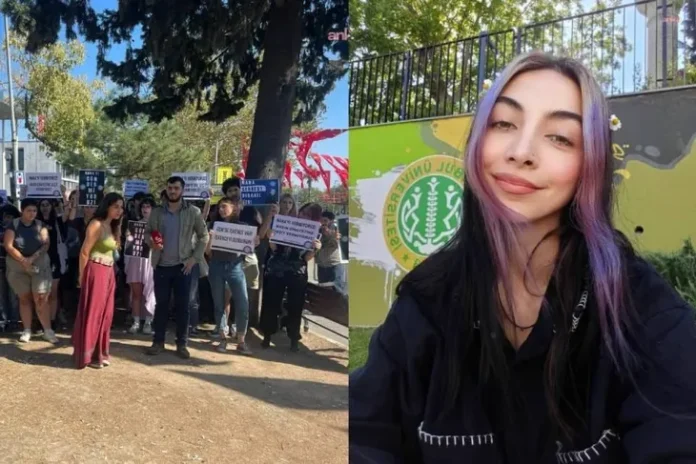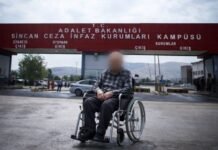Turkish authorities have designated an Azerbaijani graduate student as a “foreign terrorist fighter” for participating in a peaceful protest over prices in the cafeteria at Istanbul University, the Evrensel daily reported.
The case of Nanaxaanım Babazade, a graduate student at Istanbul University, was brought to the Turkish Parliament by Labor Party (EMEP) deputy İskender Bayhan, who submitted a parliamentary question to Interior Minister Ali Yerlikaya. Bayhan demanded to know why participation in a cafeteria protest could be treated as grounds for a terrorism-related classification and asked what objective criteria were used to assign the label.
Babazade was detained on August 21 and transferred between the Arnavutköy and Çatalca deportation centers. According to Bayhan she was subjected to verbal harassment, physical violence, denial of access to her lawyer and repeated forced transfers intended to intimidate her.
Her lawyer Veli Günay, previously said that Babazade showed signs of physical assault and was subjected to a strip-search in the presence of male police officers.
Civil society groups and student organizations condemned the incident, noting that Babazade, a women’s rights and LGBT+ activist, has repeatedly faced threats from her family in Azerbaijan due to her views and would be at serious risk if deported.
Authorities also allegedly pressured her to sign a “voluntary return form,” warning that she would “never leave prison in Turkey” if she refused. She was also threatened with obstacles to her residence status unless she gave testimony against other students involved in campus solidarity actions.
Bayhan added that Babazade was denied access to her belongings, her vegan dietary needs were ignored and her rights to health care and communication were restricted. He questioned whether CCTV footage of her treatment had been secured and what safeguards were in place against tampering.
In his inquiry Bayhan asked the ministry to disclose how many foreign students in Istanbul had been detained over participation in protests, how many had been assigned “terrorist” codes and from which countries, and how many were pressured into signing return forms. He also demanded information on the outcome of complaints concerning denial of legal counsel, abuse and coerced signatures.
“The most basic democratic rights of foreign students are being violated,” Bayhan said. “This is a policy of criminalization, not migration management.”
Rights groups argue that Babazade’s treatment exemplifies a wider pattern in which foreign students and migrants are targeted not for genuine security concerns but for exercising the right to freedom of expression and assembly. By applying the “terrorist” label to peaceful protest participants, critics say, Turkey is violating both domestic legal protections and its obligations under international conventions, including the European Convention on Human Rights.















